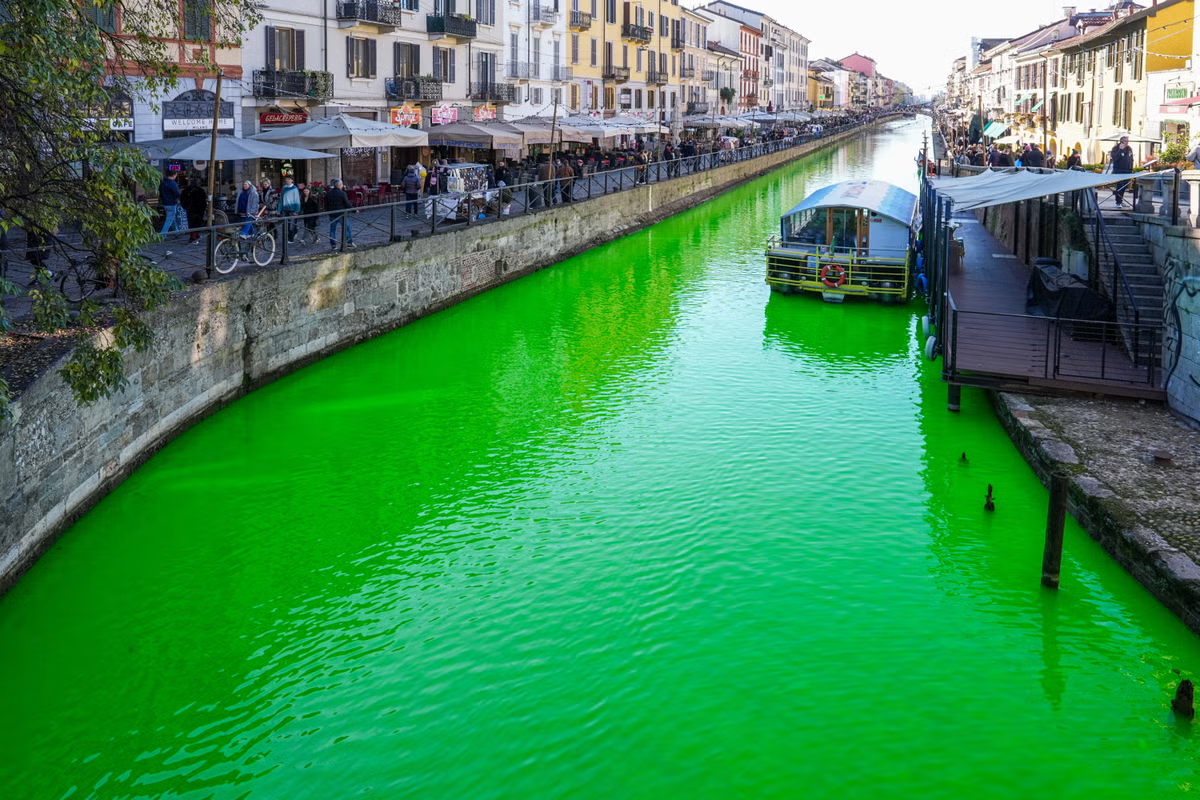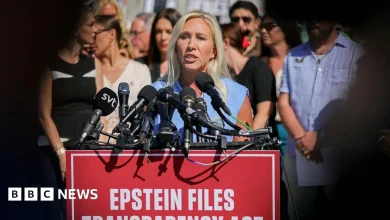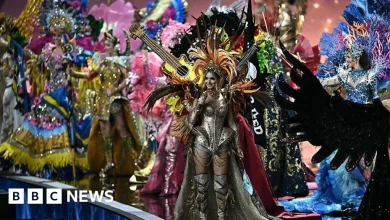Greta Thunberg banned from Venice after activists dye Grand Canal bright green in protest

On The Ground newsletter: Get a weekly dispatch from our international correspondents
Get a weekly dispatch from our international correspondents
Get a weekly international news dispatch
Climate activist Greta Thunberg was banned from Venice for 48 hours and fined £132 after she and fellow Extinction Rebellion activists dyed the Grand Canal green in a protest over the weekend.
Thirty-five other activists received the same punishment. The activists said they used an environmentally harmless dye to draw attention to the “massive effects of climate collapse.”
The protest took place to coincide with the conclusion of the Cop30 United Nations climate conference in Brazil.
The group also displayed a banner reading “Stop Ecocide” from the Rialto Bridge and staged a flash-mob in which protesters, dressed in red with veils over their faces, walked slowly through crowds of tourists.
open image in gallery
People enjoy a gondola ride on the Grand Canal, where the canal’s water was dyed green (Reuters)
Luca Zaia, governor of the Veneto region, criticised the action as “a disrespectful act towards our city, its history and its fragility.”
He added: “It’s a gesture that risks having consequences for the environment.”
Some tourists, however, described the protest as legitimate and said it highlighted the failure of world leaders to tackle climate change effectively.
Extinction Rebellion said similar demonstrations had taken place in ten Italian cities, including dyeing fountains in Genoa and Padova and rivers in Turin, Bologna and Taranto.
The group criticised the Italian government, led by prime minister Giorgia Meloni, for opposing ambitious climate measures at Cop30.
open image in gallery
Greta Thunberg has been fined by authorities in Italy (Reuters)
United Nations climate talks appeared to be nearing a conclusion after spilling into overtime, with a result likely to disappoint countries and advocates for stronger action to wean the world from the coal, oil and gas that is heating the planet.
Several observers told the Associated Press that the general framework of a deal is formed, but some sticking points still remain.
“The deal informally is there from what we know,” said former Philippines negotiator Jasper Inventor, now at Greenpeace International. “It’s a weak outcome.”
Cop30 President André Corrêa do Lago told Amazonia Vox Saturday morning that there is a deal that will take a while to explain because so much is in it.
But a proposal for a road map to transition away from fossil fuels — which more than 80 countries called for, as did Brazil’s president — will not be in there.
Instead, a fossil fuel transition plan will be in a separate proposal issued later by do Lago’s team that won’t carry the same weight as a deal accepted by nations at United Nations conference.





